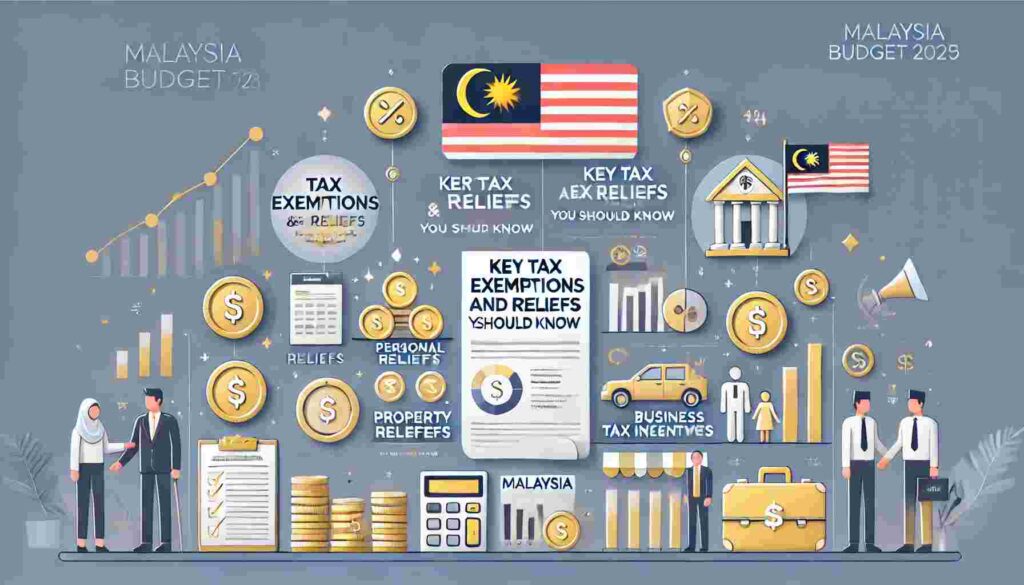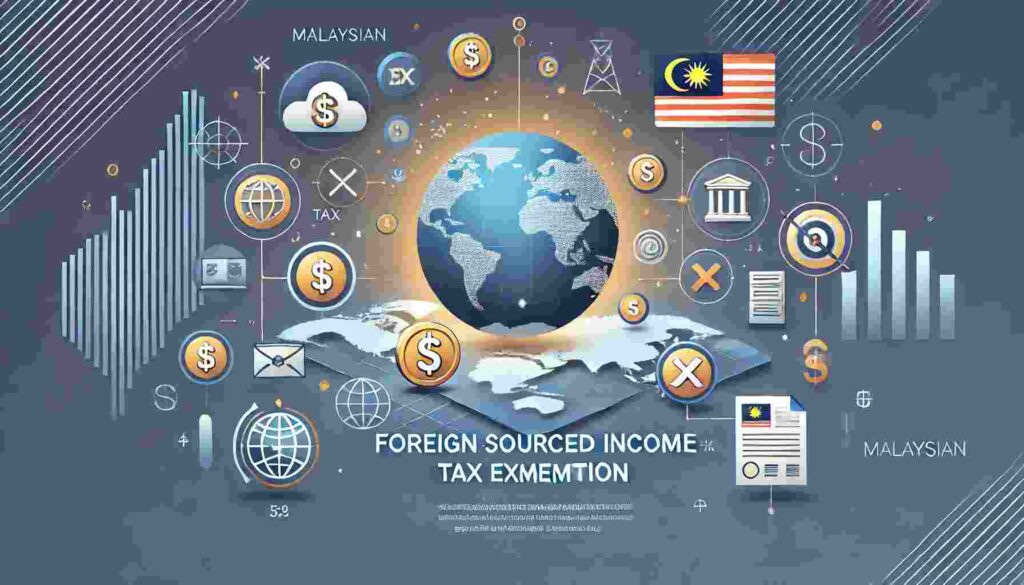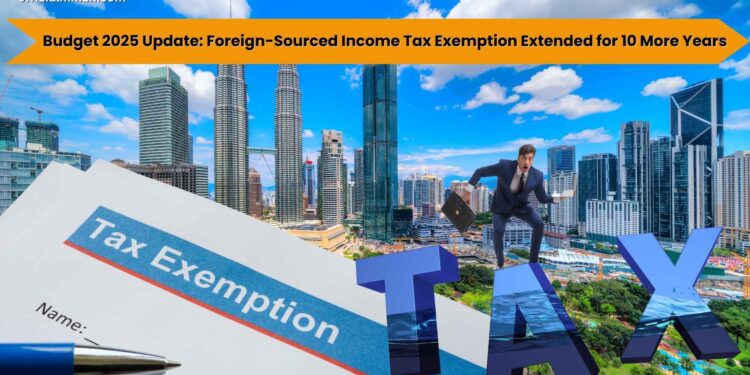Budget 2025 Update: Malaysia Extends Foreign Sourced Income Tax Exemption Until 2036 and Reliefs You Should Know
The Malaysian government has unveiled an array of tax exemptions and reliefs in the 2025 Budget, aiming to ease financial burdens, promote sustainability, and enhance social protection. Announced by Prime Minister and Finance Minister Datuk Seri Anwar Ibrahim, these measures reflect a strong commitment to creating a more equitable and progressive tax system. Here’s a detailed breakdown of the key highlights and their potential impact on taxpayers.
Extended Foreign Sourced Income Tax Exemption

One of the most significant announcements is the extension of the foreign-sourced income tax exemption for an additional 10 years, now valid until December 31, 2036. This exemption applies to foreign-sourced income that has already been subjected to tax in its country of origin.
The original exemption, effective from January 1, 2022, to December 31, 2026, provided relief to resident individuals, allowing them to retain more of their foreign earnings without double taxation. The extension is expected to benefit a wide range of taxpayers, particularly professionals and expatriates with income sources outside Malaysia.
However, it’s important to note that the exemption does not apply to income received through partnership businesses in Malaysia. This targeted approach ensures that the policy supports individual taxpayers while maintaining oversight of partnership-related earnings.
Enhanced Income Tax Reliefs for Individuals
The 2025 Budget introduced various enhancements to income tax reliefs, catering to the diverse needs of Malaysian families and individuals. These changes focus on critical areas such as health, education, sustainability, retirement, and childcare.
1. Education and Medical Insurance Premiums
The relief for premiums paid towards education and medical insurance has been increased from RM3,000 to RM4,000. This update, effective from the year of assessment 2025, acknowledges the rising costs of healthcare and education, offering families additional financial support to safeguard their future.
2. Promoting Sustainability: Eco-Friendly Tax Relief
In line with Malaysia’s commitment to environmental sustainability, the tax relief for purchasing electric vehicle (EV) chargers has been expanded to include food waste composting machines for household use. This relief will remain available until the 2027 assessment year.
The inclusion of composting machines highlights the government’s efforts to promote a circular economy, encouraging households to adopt environmentally friendly practices.
3. Private Retirement Schemes and Deferred Annuities
The individual income tax relief for contributions to private retirement schemes and payments for deferred annuities has been extended until the 2030 assessment year. This move aims to encourage long-term financial planning, ensuring Malaysians are better prepared for retirement.
4. National Education Savings Scheme (SSPN)
To further encourage savings for children’s tertiary education, the relief on net annual savings in the SSPN remains at RM8,000 and is extended for an additional three years, up to the 2027 assessment year.
5. Increased Childcare Relief
Recognizing the rising costs of childcare, the government has increased the tax relief for fees paid to childcare centres and kindergartens from RM2,000 to RM3,000. This higher limit is extended for three more years, up to 2027. It provides much-needed relief to working parents, making quality childcare more affordable.
6. Support for Autistic Children
In a progressive step towards inclusivity, the tax relief limit for treatment and rehabilitation expenses for autistic children has been raised from RM4,000 to RM6,000. This reflects the government’s recognition of the unique challenges faced by families with special needs children and their commitment to providing greater support.
Social and Economic Implications
The series of tax measures announced in Budget 2025 reflects a comprehensive approach to addressing both immediate and long-term needs.
Encouraging Financial Stability
The extended exemptions and reliefs, particularly for foreign-sourced income and retirement savings, aim to enhance financial stability among Malaysian taxpayers. By reducing the tax burden, individuals can allocate more resources towards personal development, family needs, and long-term investments.
Boosting Environmental Awareness
The inclusion of eco-friendly tax incentives demonstrates the government’s dedication to environmental conservation. By encouraging the adoption of composting machines and EV chargers, Malaysia is taking a step closer to achieving its sustainability goals, empowering citizens to contribute to a greener future.
Strengthening Education and Healthcare
Enhanced reliefs for education and medical insurance premiums reflect the government’s focus on building a healthier and more educated society. These measures not only alleviate financial pressures but also emphasize the importance of investing in essential services.
Supporting Vulnerable Communities
The increased tax relief for autistic children underscores the government’s commitment to inclusivity and social protection. This change is a testament to the administration’s efforts to uplift marginalized communities, ensuring that every Malaysian has access to the resources they need.
What Taxpayers Need to Do

To fully benefit from these new measures, taxpayers should take proactive steps:
- Review Eligibility: Check if you qualify for the foreign-sourced income tax exemption or any of the enhanced reliefs.
- Keep Records: Maintain accurate documentation of expenses related to education, medical insurance, childcare, and eco-friendly purchases.
- Consult Experts: Engage with financial or tax advisors to understand how these changes impact your overall tax planning.
- Save Strategically: Take advantage of extended reliefs like SSPN savings and private retirement schemes to secure your future.
Conclusion
The 2025 Budget marks a significant milestone in Malaysia’s journey towards a fairer, more inclusive tax system. With measures aimed at reducing financial burdens, promoting sustainability, and supporting vulnerable groups, the government has laid a strong foundation for a brighter future.
Whether you’re saving for your child’s education, planning for retirement, or adopting greener practices, these tax exemptions and reliefs provide ample opportunities to maximize your savings.




